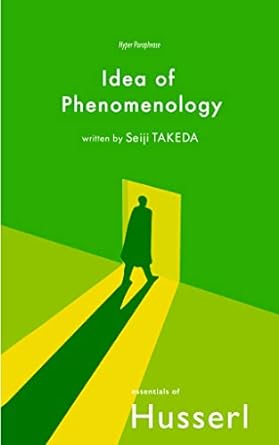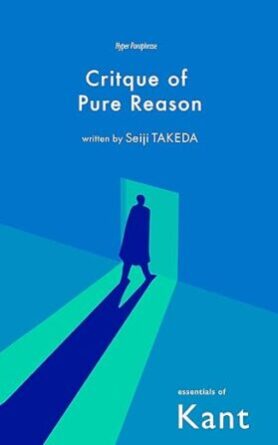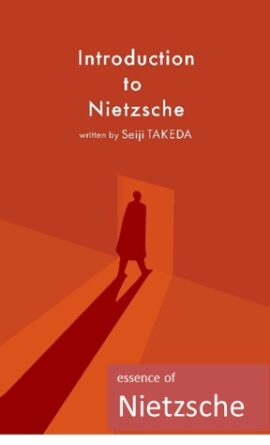Perfect-paraphrase Series of Philosophical Text
Perfect Paraphrase series is the world’s first “Complete Decipherment of Philosophy” series, in which the entire original texts of difficult philosophical books, from the first to the last chapter almost as it is, have been rewritten and “converted” into plain language that ordinary readers can easily understand. So far, Husserl (Idea of Phenomenology), Hegel (Phenomenology of Spirit) and Kant (Critique of Pure Reason) have appeared, with sequels planned for Heidegger, Nietzsche, Wittgenstein and other big names.
Volume I: Husserl

The agreement of subject and object’ is, in principle, impossible. What was Husserl’s idea of ‘phenomenological reduction’ to solve the enigma of the ‘epistemological problem’ that has plagued modern philosophers? This book clears up the misunderstandings about the phenomenology which has long been subject to various criticisms, and gets to the heart of Husserlian phenomenology. The first in a very popular Perfect-paraphrase series for accessible reading of the key principles of modern philosophy.
Volume II: Hegel

Hegel is the culmination of European philosophy. On the one hand, Hegel synthesized the philosophical achievements of Hobbes, Locke, Rousseau and Kant and established the fundamental ideas of modern society. What is truly remarkable, however, is the depth of his thought, which goes to the very essence of human existence. Twentieth-century philosophy stumbled upon Hegel’s philosophical system of the Absolute and failed to understand its true essence. Now the true potential of Hegel’s philosophy is being revealed. Second in the series of perfect-paraphrase!
Volume III: Kant

Reread Kant's philosophy, the pinnacle of modern philosophy! What is the principle of the "impossibility of metaphysics"? What are "antinomy," "categories," and "the thing in itself"? This book unravels these difficult concepts in an easy-to-understand way, allowing us to survey the horizons of knowledge that Kant brought to the modern era.
Introduction to Nietzsche

Nietzsche’s philosophy was rescued from the great misunderstanding of the philosophy of power in the second half of the 20th century, but its true achievement — the radical overturning of the epistemology and ontology of European philosophy — has not yet been understood. What is the ‘eternal return’? What is the ‘idea of power’? A radically new approach to Nietzschean philosophy must be offered.
The Philosophy of Desire Vol. I and Vol.II
VolumeⅠ The essential principle of “Meaning”

A groundbreaking shift is occurring in the 2500-year-old landscape of philosophy. This ambitious work aims to rebuild the fundamental theory of value and meaning in our modern world, where such concepts often seem absent. The author posits a striking idea: "It is desire that shapes our understanding of the world. Desire weaves the tapestry of value and meaning into our reality."
This comprehensive tome surveys the entire spectrum of philosophical thought, from the ancient wisdom of Plato and Aristotle, through the revolutionary ideas of Descartes, Kant, and Hegel, to the modern perspectives of Nietzsche, Husserl, and Heidegger. But it doesn't stop there - it boldly pushes the boundaries of philosophy into new, unexplored territories. With over 2000 pages, this is truly an epic undertaking!
At its core, this work argues that desire is the fundamental force that articulates our world. It is through our desires that we infuse our environment with value and meaning. In an age often characterized by a perceived lack of intrinsic value, this ambitious project seeks to reconstruct the very foundations of how we understand value and meaning in our lives and our world.
⇒To English translation
VolumeⅡ The essential principle of “Value”

Modern philosophy finds itself lost in a labyrinth of illusory debates, grappling with the problem of appearances. By completely dismantling the concept of "substance" on philosophical grounds, we can finally explore the possibilities and limitations of human cognition. What can we know? What lies beyond our grasp? What are the conditions and structures that allow for universal understanding? Only through this exploration can we uncover new horizons of knowledge and learning. The thorough deconstruction of substance theory is the essential starting point for revitalizing philosophy and thought in contemporary society.What is truth? What is goodness? What is beauty? This work boldly attempts to answer philosophy's most fundamental questions!
